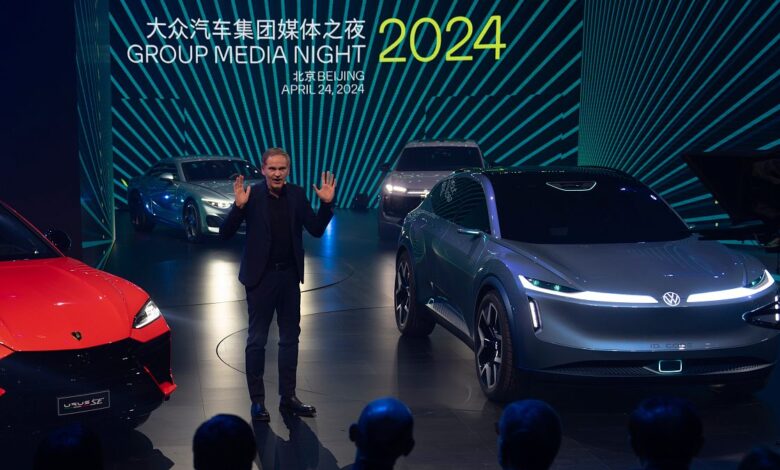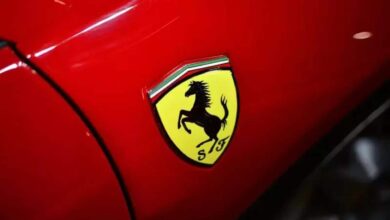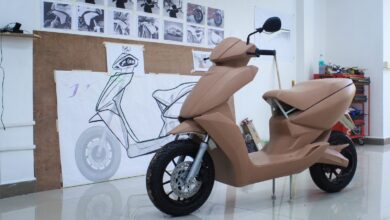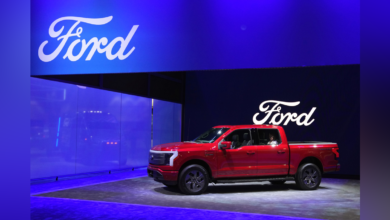European electric car makers fight to catch up in China

Volkswagen and other European giants risk falling behind in an industry where manufacturing and sales dynamics are changing with incredible speed.
Global automakers and electric vehicle (EV) startups unveiled new models and concept cars at China’s largest auto show on Thursday, with a focus on the nation’s transformation into a major market and production base for new-energy vehicles – a trend that Europe’s car manufacturing giants are struggling to keep up with.
Toyota and Nissan both announced tie-ups with major Chinese technology companies as they strive to meet customer demand for AI-enabled online connectivity in cars, from social media apps to autonomous driving features.
Chinese EV makers have been expanding rapidly into overseas markets, and are now increasingly building factories in Europe, raising concern in some countries that they pose a potential threat to European automakers and jobs.
The EU is weighing whether to impose tariffs on China-made EVs because of government subsidies that drove the industry’s growth.
In her address to the European Parliament last September, European Commission President Ursula von der Leyen pointed to the root of the problem: “Global markets are now flooded with cheaper electric cars. And their price is kept artificially low by huge state subsidies…”
“Europe is open to competition. Not for a race to the bottom”.
No time to waste
The proliferation of global EV makers, encouraged by tax breaks as well as green-energy subsides, has prompted a fierce price war that is expected to lead to a shakeout and consolidation of the industry in the coming years.
The development of the Chinese sector and the fierce competition in both manufacturing and sales has been so fast that several domestic companies have folded altogether, while international ones have pulled out.
“No other region of the world has a transformation of the automotive industry that is as fast-paced as in China,” Volkswagen CEO Oliver Blume said on Wednesday at an event previewing his company’s appearance at the auto show.
“This market has become something of a fitness centre for us,” he said. “We have to work harder and faster to keep up”.
Makers like Volkswagen, which sells about one-third of its cars in China, scrambling to develop new models for a very different market than back home, and expanding far beyond its roots in China as a maker of no-frills sedans used by taxi fleets.
The Volkswagen Group, which also includes Audi and Porsche, plans to launch 40 new models in China over the next three years and to have a lineup of 30 EVs by 2030 in what Volkswagen CEO Oliver Blume told investors Wednesday is the company’s “second home market”.
Volkswagen’s response has been to shift to developing cars in China from the ground up, rather than adapting European models to the local market.
The company announced earlier this month that it would invest €2.5 billion to expand research and development and production in the city of Hefei, where it has teamed up with Chinese EV maker XPENG Motors to develop two midsize VW models to launch in 2026.
However, the company has come under fire for operating a plant in China’s western Xinjiang region, where Western governments accused the Chinese government of human rights violations committed against the Uighur Muslim minority.
Among the allegations is that Chinese authorities have interned hundreds of thousands of people, many of them reportedly pressed into forced labour.
Volkswagen has said an audit it commissioned found no evidence of forced labour at its facility, though Brandstätter said on Wednesday that VW is in talks with its Chinese joint venture partner in Xinjiang and is investigating options for the plant’s future.



